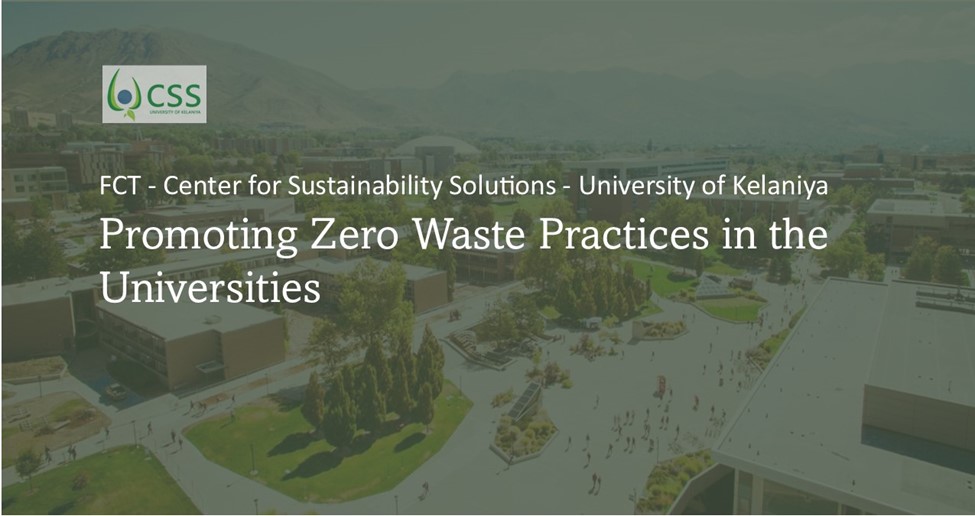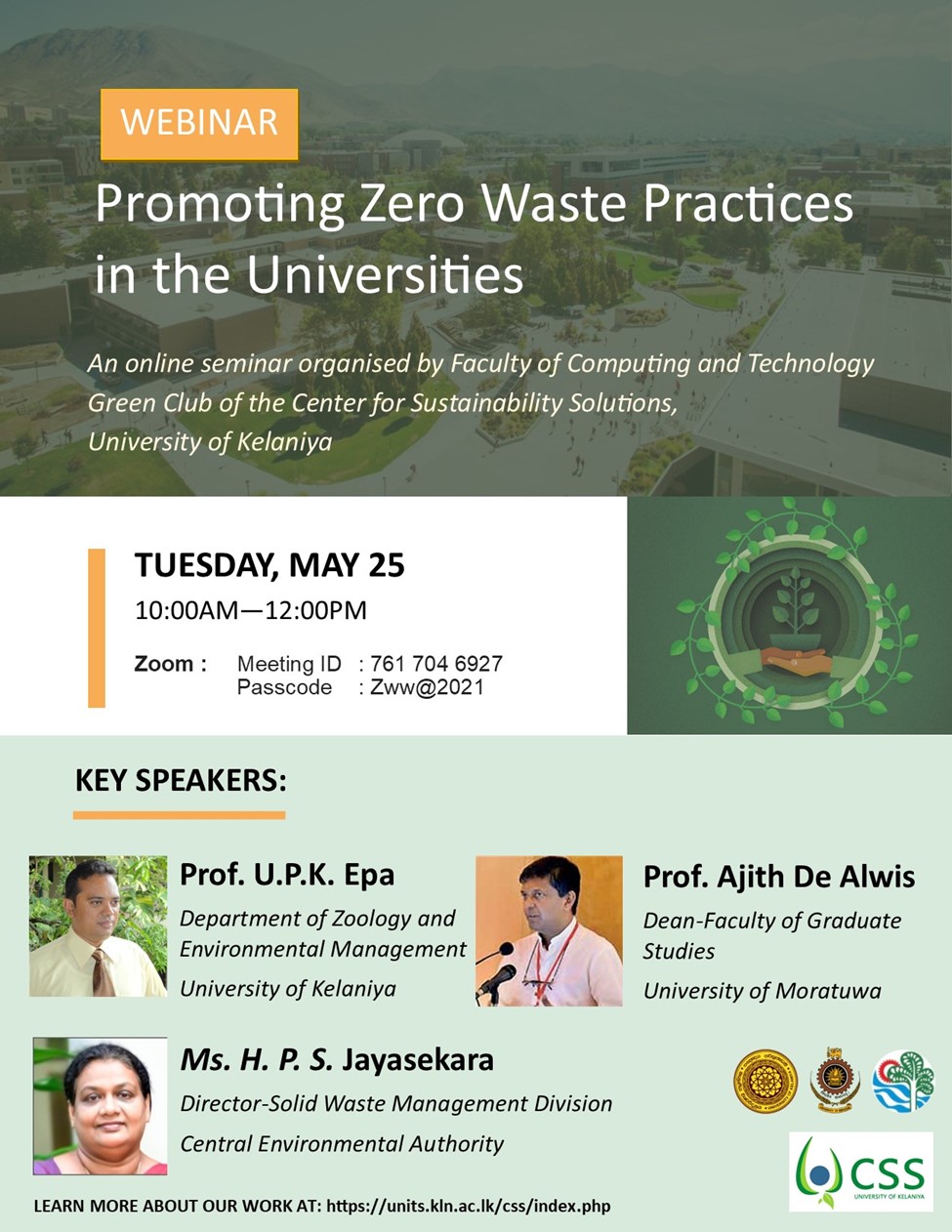News and Events

Webinar on Promoting Zero Waste Practices in University
Key Speakers and Topics
Sri Lanka scenario in Waste management
Ms H. P. S. Jayasekara, Director-Solid Waste Management Division, Central Environmental Authority
Waste management practices in University of Kelaniya
Prof. U.P.K. Epa, Department of Zoology and Environmental Management, University of Kelaniya
Opportunities and challenges in implementing zero waste practices in a university environment.
Prof. Ajith De Alwis, Dean-Faculty of Graduate Studies, University of Moratuwa
Summary
Increasing population, rapid urbanisation and industrialization have resulted in increased consumption and generation of consumer items. Consequently, the generation of waste has also increased. According to the world bank data, the world generates over 2 billion tonnes of waste annually and it is expected to grow to 3.40 billion tonnes by 2050. Thus, sustainable management of solid waste has become imperative especially focusing on the developing countries where advanced technologies are not readily available for the identification of the chronic and acute impact of waste to the environment and humans.
A systematic approach to waste management will eventually lead to a significant reduction of final dumping volumes. Though the 3R (reduce, reuse and recycle) concept of waste management is long being discussed, its implementation and practice are certainly not up to the expectations given the fact of increasing daily solid waste generation volumes. Lack of social awareness, as well as limitations in rules and regulations, are the main reasons behind this.
Universities are ideal places to implement systematic waste management plans not only because it's filled with intellectuals but also it represents a prestigious place in society. However, the implementation of such a plan may require strategic planning and a timely approach to not to disturb the existing processes in the university. This webinar is aimed to discuss the opportunities, challenges and perspectives for Sri Lankan universities to implement “zero waste” strategies for sustainable operations.
Partners
CSS: The Centre for Sustainable Solutions (CSS) is the official body that is responsible for sustainable practices at the University of Kelaniya. Currently, it is composed of members from all the faculties of the university with different backgrounds.
FCT Green Club: Faculty of Computing and Technology (FCT) is the youngest faculty in the University of Kelaniya. FCT Green Club is formed to uplift the sustainable activities in faculty premises.
The webinar is organized by the FCT Green Club of the Center for Sustainability Solutions (CSS), University of Kelaniya. The event targets all the stakeholders of the University of Kelaniya, as well as other universities in Sri Lanka.


